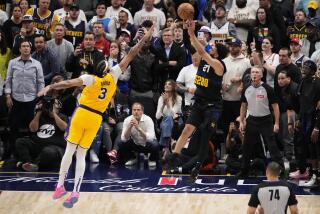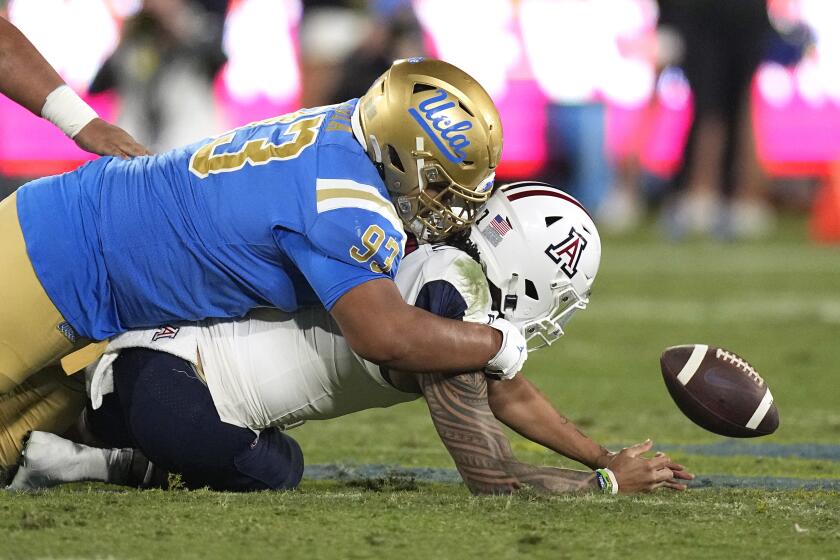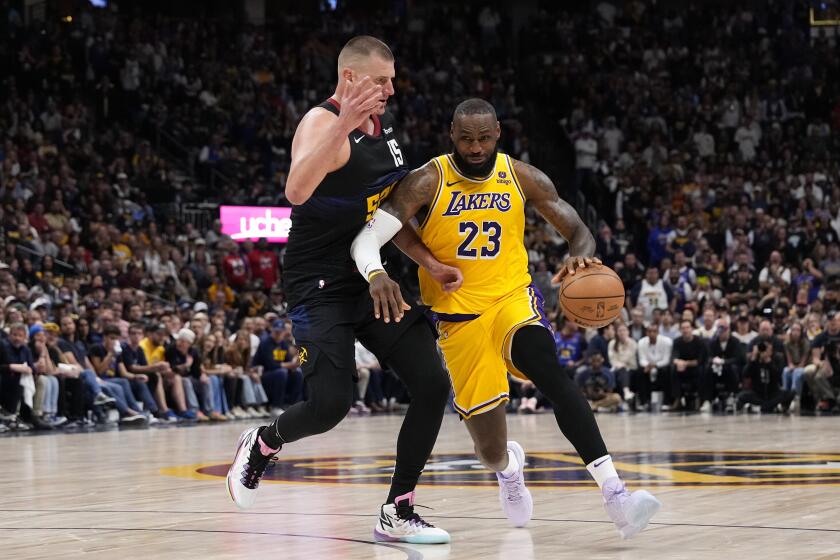Here’s the deal: Boras is called out
Scott Boras tossed three new letters into the alphabet soup of baseball abbreviations. We learned long ago about ERA and RBI. The statistically inclined favored OBP and OPS.
As summer turned to fall, Boras introduced us to IPN. On Wednesday, we learned its real meaning: Individual Player Negotiating. Alex Rodriguez is an IPN player indeed.
It was Schadenfreude Day in baseball, with a startling number of folks on the players’ side and the owners’ side united in toasting what appears to be the public humiliation of the most powerful agent in the game. Think about it: The best player in baseball issues a statement announcing he has circumvented his agent so he could rejoin the team he never wanted to leave.
“I think there are a lot of people in this business having various degrees of glee over this,” said a longtime baseball power broker, “whether they are general managers, people in the commissioner’s office, people in the media or some competing agents.”
Boras led Rodriguez in walking away from the richest contract in baseball history, inventing IPN to portray Rodriguez as a unique player with iconic value, performance value and network television value. Rodriguez walked himself back to the New York Yankees.
“It became clear to me,” he said in his statement, “that I needed to make an attempt to engage the Yankees. . . . I wanted the opportunity to share my thoughts directly with Yankees’ ownership. . . . I reached out to the Yankees through mutual friends.”
If Boras had made that first call, the Yankees would not have listened. They had made an attempt to engage Rodriguez. They had wanted the opportunity to share their thoughts directly with Rodriguez. They had reached out through Boras, his representative.
Boras had put a price on that engagement, that opportunity: $350 million, over 10 years.
“What happened here was that his bravado got the better of him,” said Smith College economist Andrew Zimbalist, an occasional consultant to the players’ union.
“Instead of pushing the envelope, he jumped zip codes. That was out of all sense of proportion, out of the grasp of the reality of the underlying economics.”
Maybe not at first glance. In each of the final two seasons under his old contract, Rodriguez would have made $32 million. If the commissioner brags that baseball generates a record $6 billion in revenue, and if Rodriguez is on the verge of his third most valuable player award in five years, why should he take a pay cut?
But, on that old contract, Rodriguez averaged $25 million per season. Even now, seven years after he signed that deal, no other player averages more than $20 million.
Boras pointed to the Yankees’ record attendance with Rodriguez; the Yankees reminded him they field nine players. Boras pointed to the Yankees’ record ratings with Rodriguez; television executives reminded him fans tune in for a championship team, not a one-man power show.
Arte Moreno, the Angels’ owner, publicly and privately scoffed at the notion he would pay Rodriguez $30 million per year. The Dodgers looked into Rodriguez and didn’t bother making an offer because they were persuaded he wanted to stay on the East Coast.
As the Boston Red Sox won the World Series, their fans chanted, “Don’t Sign A-Rod!” The rest of the East Coast passed, the New York Mets included.
Then, after the Florida Marlins apparently surprised Boras by putting star third baseman Miguel Cabrera on the trading block, the Palm Beach Post reported that Boras’ lieutenants disparaged Cabrera in the lobby of the general managers’ meetings.
These were not the finest of days for Boras. He had subjected Rodriguez to ridicule by announcing his free agency during the final game of the World Series, a dramatic step toward a $300-million offer that never surfaced, at least not publicly.
Said Zimbalist: “Not only was it a misread of the market, it was a complete strategic blunder to put A-Rod in that situation.”
Don’t cry for Boras, or for Rodriguez. The new deal with the Yankees is all but finalized, for 10 years at $275 million, so Rodriguez opted out of the richest contract in baseball history for an even richer one.
Boras did not return a call Wednesday. He could say that Rodriguez first explored free agency, then decided he wanted to stay with the Yankees.
The Yankees had vowed not to negotiate if he opted out, Boras could say, and Rodriguez got a deal done with them anyway.
Boras did not lose his cachet -- or his client -- when Andruw Jones bypassed him to negotiate a contract extension with the Atlanta Braves six years ago. His star-studded collection of clients remains the most impressive in baseball.
But the Rodriguez drama provides a welcome reminder that asking prices are just that, no matter how many times an agent repeats them. After Boras had put a $200-million price tag on Carlos Beltran three years ago, the Mets signed him for $119 million.
Boras dedicates himself to winning the most lucrative contracts he can for his clients, not winning friends, and his controversial strategies and high visibility make him a prime target within the industry.
On the one hand, one competing agent said, it would have been nice to see the first $300-million contract in baseball. On the other, he said, it was nice that Boras did not get it.
More to Read
Get our high school sports newsletter
Prep Rally is devoted to the SoCal high school sports experience, bringing you scores, stories and a behind-the-scenes look at what makes prep sports so popular.
You may occasionally receive promotional content from the Los Angeles Times.






